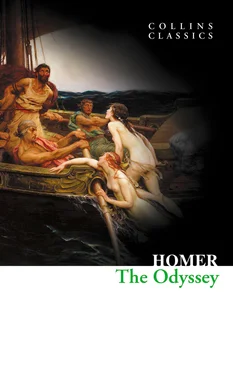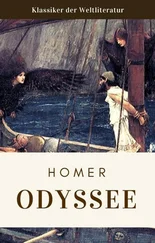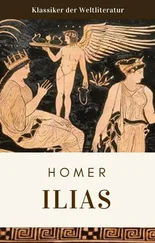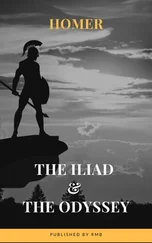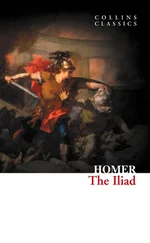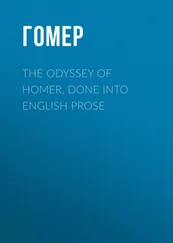Telemachus called her into the chamber and said to her, ‘Good mother, pray draw off for me in jars some sweet wine: your second best, that which comes next after the very special vintage you are reserving for him, the unfortunate one, godlike Odysseus, in case he somehow tricks death and fate and wins his way back. Fill me twelve jars, sealing each with its stopper. Then run barley meal into stout-sewn leather sacks. Twenty measures let there be, of your well-kerned barley groats. See that no one spies what you do: but heap up all the things together in one place, whence I can fetch them this evening after my mother has gone up to her room in preparation for bed. I am going to Sparta and sandy Pylos, hoping to learn something of my father’s return.’
Eurycleia, the foster-mother who loved him, wailed aloud at the tidings and implored him tearfully: ‘Alas, my dearest child, why has such a notion come into your head? How should you hope to make your way over the vast earth, you a shielded only son, when your father Odysseus, the descendant of gods, himself perished there very far away, wandering in some place unknown? Further, so soon as your back is turned these men in your guest-hall will think out some evil to overtake you: and thus you will die in a trap, leaving them to share out your goods between them. Instead, do you sit here in your proper place. It is no duty of yours to stray over the desolate sea in search of misfortune.’
Wise Telemachus answered her: ‘Be brave, good nurse. This plan did not come to me without the prompting of Heaven. But swear not to breathe a word of it to my dear mother till eleven or twelve days are passed, or till she misses me and learns that I have gone away. I want to spare her beautiful face from being furrowed with tears.’ Thus he spoke, and the old woman swore a great oath by the Gods. He heard her swear and seal the oath: and after it at once she turned to drawing off his wine in jars and filling the stout leathern wallets with barley meal, while Telemachus returned to the living rooms and entertained the suitors.
All this time the clear-eyed Goddess was taking thought for the next stages of her plan. In the guise of Telemachus she traversed the entire city and standing by each of her men said her say, exhorting them to muster at nightfall by the swift ship: the ship itself she asked of Noemon, famed son of Phronius, who granted it heartily.
The sun went down into the sea, and the streets grew obscured. Then Athene had the fast ship run down into the water and stowed aboard her all the gear proper to a well-found galley. She had her brought round to the very mouth of the harbour where the picked crew had rallied, every man of them inspired by the grey-eyed Goddess with her own zest.
Athene, steadily pursuing her course, next visited the great house of Odysseus and there poured out upon the suitors a fond sleep and dazed them as they drank, till the cups slipped from their drowsy hands. Incontinently the banquet broke up, as each man struggled homewards to his bed in the city, with a weight of slumber bearing down his eyelids. Then the Goddess called Telemachus to speak with her outside the comfortable halls. She was again Mentor in speech and body. ‘Telemachus,’ she said, ‘your companions, all armed and ready, sit now on the thwards abiding only your advent. Let us go, and not hold them longer from the journey.’
With the word Pallas Athene went swiftly in the lead. He followed in her track. When they came out on the beach to the ship, there they found the long-haired company waiting at the water’s edge. To them Telemachus, their appointed leader, made his first speech: ‘Friends, come with me and lend a hand with the rations. I have everything put together, ready, in the house: and my mother knows nothing of our business, nor do any of the house-maids. I have told just one woman out of them all.’
He spoke and led back: and they went with him. They laded everything on their shoulders to the ship and put it away below, as the beloved son of Odysseus directed. Afterwards Telemachus went on board (Athene having preceded him) and sat down in the stern-sheets, quite near where she had seated herself. The crew loosed the after-warps, clambered aboard, and took their seats on the oar-benches.
Then did Athene, the clear-eyed, summon up for them a favouring breeze, a brisk following West Wind which thrummed across the wine-dark sea. Telemachus roused his followers and bade them get sail on the vessel. They obeyed him: the fir mast was raised aloft and heeled through its pierced cross-beams: the stays were rigged and the white sails hauled up by their halyards of pliant cowhide. The wind caught the sail, bellying it out, and the blue-shadowed waves resounded under the fore-foot of the running ship as she lay over on her course and raced out to sea.
They made fast all the running tackle of the swift dark hull and got out the drinking bowls. These they filled with wine, brim-full, and poured out as offerings to the Immortal Gods that are for ever and ever: honouring especially the clear-eyed Daughter of Zeus: while the ship cleft through the long night towards the dawn.
BOOK 3 CONTENTS COVER TITLE PAGE THE ODYSSEY Homer BOOK 1 BOOK 2 BOOK 3 BOOK 4 BOOK 5 BOOK 6 BOOK 7 BOOK 8 BOOK 9 BOOK 10 BOOK 11 BOOK 12 BOOK 13 BOOK 14 BOOK 15 BOOK 16 BOOK 17 BOOK 18 BOOK 19 BOOK 20 BOOK 21 BOOK 22 BOOK 23 BOOK 24 CLASSIC LITERATURE: WORDS AND PHRASES ADAPTED FROM THE COLLINS ENGLISH DICTIONARY ABOUT THE AUTHOR OTHER WORKS TRANSLATOR’S NOTE HISTORY OF COLLINS COPYRIGHT ABOUT THE PUBLISHER
Forth from the lovely waters sprang the sun into its firmament of brass, thence to shine upon the Immortals, as also upon mortal men walking amid the corn-fields of earth; while the ship drew into Pylos, the stately citadel of Neleus. There upon the fore-shore were gathered the inhabitants, doing sacrifice to the Earth-shaker, Poseidon, the dark-tressed God. Nine congregations they made, each five hundred strong: and every congregation had offered nine victims, jet-black bulls free from any fleck of colour, to the God: in whose honour the leg-bones were now burning with fire while the assembly ate of the entrails and organs.
Straight towards this beach the tight ship was steered. The crew brailed up and furled: then moored her. Afterwards they all issued forth (including Telemachus) in the train of grey-eyed Athene. She turned to him and said, ‘Telemachus, here is no room for false modesty: no room at all. Have you not come oversea in quest of your father, expressly to learn where the earth is hiding him or what doom he has drawn upon himself? So you must go up straight, now, to this horseproud Nestor, and make him yield to you the inmost secrets of his heart. Implore him, yourself, to speak perfect truth: and then he will not deceive us: for his mind is compact with wisdom.’
The cautious Telemachus protested thus: ‘Mentor, how dare I approach him, how cling to him in supplication, when I am all unversed in speeches of subtle appeal? It is only right for a young man to be diffident when he importunes an elder.’ The Goddess rejoined, ‘Your heart will prompt you in part: and other things the spirit will teach you to say. I think if ever anyone was conceived and grew to manhood with the fostering care of the gods, it was yourself.’
Pallas led on swiftly while she spoke. Telemachus followed her divine steps, till they encountered the throng of the men of Pylos. There sat Nestor amongst his sons, with his followers busied about him, arranging the feast or roasting joints of beef or skewering choice morsels on the spits. Yet no sooner did they spy strangers than one and all crowded forward with welcoming hands, to have them take place in the gathering. Peisistratus, Nestor’s son, reached them first. He took a hand of Athene and a hand of Telemachus and led them to fleecy sheepskins spread over the sand of the beach beside the platters, where sat Thrasymedes, his own brother, and Nestor their father. He gave them portions of the beasts’ inwards: and pouring wine into a gold tankard he raised it to Pallas Athene, daughter of aegis-bearing Zeus, with these words:
Читать дальше
